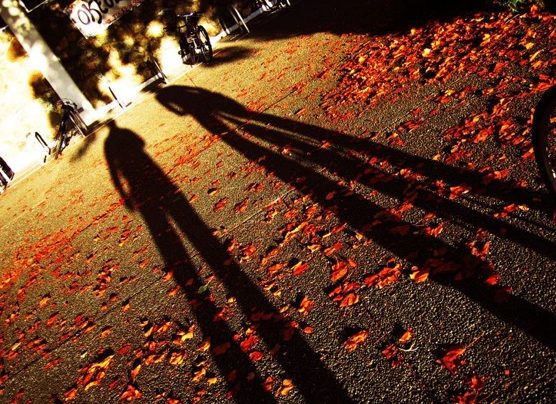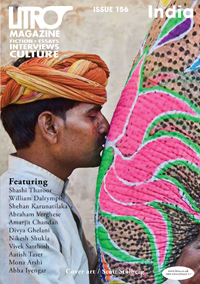You have no items in your cart. Want to get some nice things?
Go shopping Jamie told a story that night to Marie. He talked of a boy named James, and she did not blink. She knew his name was Jamie, and that he would have liked to be called James. He had told her once that he was too grown up, and should no longer be called Jamie. Marie had agreed.
Jamie told a story that night to Marie. He talked of a boy named James, and she did not blink. She knew his name was Jamie, and that he would have liked to be called James. He had told her once that he was too grown up, and should no longer be called Jamie. Marie had agreed.
His mother called him Jhoomar, which was a Hindu name, and he could not understand why. She had embraced Christianity ever since she came to the Tirinidad islands on the ship all the way from India.
“Ma, you are now a Christian. You should give up all thoughts of the old country and its faith,” Jamie often told her, but she clung to both with a nostalgia Jamie did not support. She had left his father and come away here with Jamie in her womb, and was now working on the sugar plantation, where Jamie worked as well. There was no other choice. They were ‘coolies’, cheap Indian labour who worked on the fields for the white masters.
That night he told Marie a story of a boy with blue eyes and straight blond hair that fell across his forehead so fair that the light could shine through it and legs long and thin and hairless that ran like the wind amidst the green grass, and arms that flailed in the sun with joy and abandonment, and skin that bruised so easy that a red blob formed fresh on the surface almost before the hunter was laid on it.
“What hunter being laid?” she asked, her eyes innocent but her mind knowing. “No hunter lays across such skin, Jamie, you should know it.”
He told her to listen and not interrupt because it stopped the flow of his words. It also stopped the flow of his dreams where he was this white-skinned James whom Marie would definitely want to get married to at the end of the story. He felt that the real Jamie would never be the man she craved as a partner, given his brown skin and black hair that curled unkempt around his ears despite all the oil he put to keep it in place. He watched as she closed her eyes and listened to the rest of his story. Her eyelashes curled upwards, forming a semi-circular fan. Her hair fell in two long plaits down her back. Small gold earrings glinted in her ears, a gift from her now dead grandmother. Jamie was fifteen and had been working from a very young age, his hands calloused and hard. She had similar hands. They both worked the fields like the rest of their family. But her face was soft like the night breeze that sweetened the air now.
She lived next door and they were childhood friends. Jamie had become increasingly conscious of her since the year before. She was a couple of years younger, and a fierce protective instinct had developed within him for her. He kept it in check, because he felt it would spoil their friendship if she knew his feelings.
They spent the hours after work together. She was the one person who lent ear to his ‘tall tales’, mocked by their other more boisterous friends. Of course, the younger kids mulled around, wide-eyed, as they listened to his stories of James the Night Rider. James slayed dragons; he hobnobbed with goblins and fairies at night. He changed his colour to a dark-skinned young man to work among the field hands in the morning, to know their world and be one with them so that no one would guess who he really was. But the children grew sleepy and wandered off to their beds and then there was only Marie. At that time, Jamie’s heart swelled with a sweetness he never knew earlier as he kept on weaving the magic of his story around and around her so that she would never escape from him.
*
They went to Church every Sunday with their hair licked and plastered behind their ears, their faces scrubbed. Jamie would steal some sandalwood paste from his mother’s dressing table and rub it onto his arms for its smell. She used that paste to anoint the Hindu gods, a pantheon she had on display there in her prayer room along with the cross of Christ.
His mother’s faith perplexed Jamie. He found it strange, a mixture of this and that, though if anyone asked her she would swear to be a devout Christian and nothing else. She sang her Hindu hymns at night, and Jamie fell asleep listening to their melodious sound.
Marie came to Church as well, and they would steal glances at each other, quietly saying hello. Yet Sunday was a day Jamie liked to be alone, sleeping off the wear and tear of the week, for exhaustion visited his young bones. The music would play on the radio and he would lie in the sun, drunk on the heat and the laziness in the air, letting life go by for that day at least. He did not allow himself the thought of the arduous week ahead and only dreamt of his time with Marie in the evenings and so got lulled into a deep sleep.
The following Sunday he could not rest. His sleep was fitful. He dreamt of dark woods, heard strange sounds, and saw himself trying to cut through long grass to follow a sound. The grass was stiff, thick and difficult to cut through, pricking him with its pointed ends like swords and lacerating his skin. He woke up in a sweat and found himself running a high fever. He glanced apprehensively at his skin to see if it had any red slashes on it but it was smooth and clear.
Jamie’s mother made him rest, and did not allow him to get up from the bed for anything. She sat up the whole night, cooling his forehead with a wet cloth again and again. Next morning was work for both of them. The owner of the plantation, Master John, did not consider a fever or exhaustion any reason for them not working.
That evening, as he lay with fever again, and his mother sat next to him nursing him, Jamie thought of Marie. He felt a bit happier just thinking of her coming, as she surely would. He had not seen her in the fields that day, but was too unwell to find out why.
She did not come. As he grappled with his fever, another, greater worry began to eat away at his insides. He asked his mother to find out where Marie was, but she would not leave his side and told him it was not something he should worry about. Seeing how his face had fallen, she reassured Jamie that Marie would come the next evening.
Every morning he staggered to work and back home in the evenings. His mother, gaunt and exhausted as well, tended to him. That whole week he did not see Marie in the fields or in the evening. His mother refused to find out why, saying that he could do so when he was well enough.
*
By the next Sunday he was better, and attended Church, hoping to see Marie there. She was standing next to her uncle, looking soft and beautiful in the morning light, and his heart skipped a beat as he looked at her. She did not look at him, however, keeping her head bent throughout the service. Jamie was so giddy just at the sight of her that he did not wonder as to why she was not looking at him. He was sure he would meet her at work on Monday morning.
Excitement would not let him rest the whole day and he tossed and turned in bed, dreaming up all kinds of stories to tell her. On Monday, she came to work, but was quiet and subdued and ignored him completely. Jamie could not understand her behaviour. He walked up to her and tried to talk to her, asking her where she had been all these days. She did not answer him. He grew visibly upset at this. His heart was hammering a strange tattoo and his brain was bursting all of a sudden.
“Come in the evening, will you then, please?” his request was more like a supplication. She nodded and walked ahead, pretending to be too busy to answer.
Jamie tried to concentrate on his work but his eyes filled with sudden tears.
*
He sat morose outside his home that evening. Maybe he already knew that she would not come. It was late night and the lights had gone off, the street outside the home was deserted. He could not rest and began to walk, his steps moving heedlessly any which way.
He was outside Master John’s home. He didn’t know how he reached there. All he knew was that a light was shining through a window and he was standing in front of it and he could see two people inside, for the curtains had not been drawn.
Master John was holding on to Marie tight, so tight that Jamie felt himself choking, as if his throat was being held. Her clothes were off. She was the victim and he was the dragon, and Jamie was the lonely bystander who watched everything in his misery, unable to do anything at all because he was just Jamie. Not James, never James, the man he wanted to be.
He turned and ran and this time it was not towards home, but away into the wilderness. The grass here was thick and it cut into his arms and his legs but he did not care.
*
They found him in the morning, his body lacerated and bleeding. Jamie’s mother cried and cried and prayed to all the gods she knew but he refused to heal. Every time the scabs formed, he plucked at them and made them bleed again and they became infected.
In his delirium he called out to her, “Marie, my Marie.”
His mother put home-made unguents and pastes that she painstakingly prepared on his wounds. Early each dawn she lit the lamp in front of the pictures of the Hindu gods, Shri Ram and Sita, Shiva and Parvati, Krishna and Ganesh and Hanuman, and the goddesses Laxmi and Kali. She lit candles in front of the picture of Christ on the Cross. She sang her bhajans and her hymns with greater fervor and then went to work. On her return, she attended to Jamie, sitting up in the night and holding him in her arms, her tears dropping on his hot skin, but he was oblivious of all this. All he could do was call out to Marie.
*
It was a couple of months before he was well. His mother told him that Master John had been kind; he had allowed him to rest. She did not tell him that now she would have to put in an extra hour everyday to make up for the time he had not worked, but he got to know this on his own. His mother also told him that Marie would be going away. She would come and say goodbye to him before she went. She had promised his mother this.
Marie came after two days. The evening sun was setting; the sky was bathed in orange light. She looked strange and all grown up, walking with a diffidence he had not seen before. Her steps were short, tentative and measured, as if she was scared of taking a wrong one. Jamie watched her as if she was a stranger, she felt so far removed from him.
“How are you, Jamie?” she said, her voice low. She kept her head down as she spoke and did not look up.
“I am fine, and you?” he said, choking on the words.
They both knew how they were.
The air filled suddenly with a sweetness that smelt sickly. It smelt of hospitals and births and death. Jamie shook his head and looked at her. There was a slight swelling at her belly that had not been there before.
“I saw you that night,” he said.
“Which night, Jamie?”
“The night the hunter was laid against me,” he said.
She knew what he was talking about.
“All night long the hunter against your skin, and you did nothing?” Her voice was a whisper of pain.
“All night long the hunter against your skin and you did nothing?” Jamie asked her then.
Her eyes filled with angry tears.
“I am just Marie,” she said.
“And I am just Jamie.”
She turned away now, her back to him.
“And you will never be called anything but Jamie. You can never be James,” she said, as she ran off into the gathering darkness, not wary now of any wrong step she might take.
*
Jamie’s stories died that night, because all stories are based on two things. There should be at least one listener who appreciates them. And there should be hope on which to build one story after another, like you build a home. Jamie had neither left with him.
Inside, his mother had begun to sing her evensong, asking the gods to slay the dragons of the world. She had full faith in their ability to do so. They were not mere mortals like Jamie was. They were gods, equivalent to the might of the white skinned man. And to make doubly certain, she also prayed to a white skinned god. She closed her eyes in supplication, her hands folded in prayer.
Jamie let out a yell and raced in, his eyes wild and his hands jerking. With one hand he swept the pictures from the shelf on to the floor. All the gods stared up at him. The kumkum and sandalwood paste fell, mixed and moved like a trickle of blood on the floor. It coloured the eye of Christ in the fallen picture. It looked as though it was bleeding.
“No more prayers,” he told his mother, who picked up the pictures one by one, sobbing quietly. “No more prayers,” said Jamie.
Then he was gone, and all she could hear was the rustle of the grass in the wind.
About Abha Iyengar
Abha Iyengar is an internationally published freelance writer and poet. Her work has appeared in several anthologies, magazines and literary journals, both in print and online. She is a Kota Press Poetry Anthology contest winner. Her story, ‘ The High Stool’ was nominated for the Story South Million Writers Award. She has won several literary contests. She is a member of The Poetry Society of India and ‘Riyaz’ Writer’s Group at The British Council, New Delhi. Abha is a social activist who is against all forms of aggression and injustice.





So much pathos and beauty in this story . Loved it Abha. :)
Thank you!
This story is masterfully written, you can’t help but yield to its experiencial hold on you. You get yanked out of your comfort zone and in the expanse of the sugar cane plantations in the Trinidad Islands, you watch another life unfold. You get scorched by the pains and struggles of the characters. As you read on, you find yourself wishing for a happy ending. Such is the gripping power of Abha Iyengar. You have to snap yourself out of her tale. It’s a literary gem, Abha. Thank you for sharing.
Thank you, Fel!